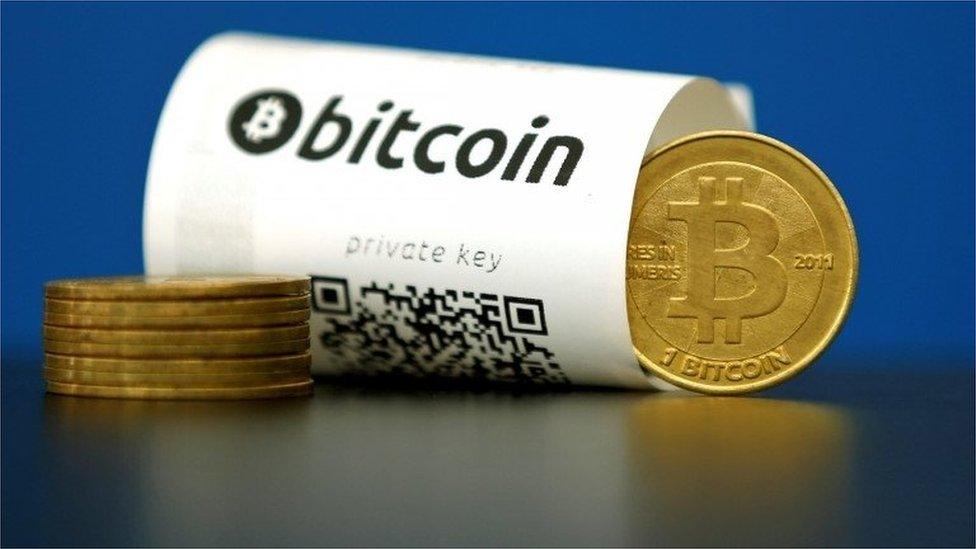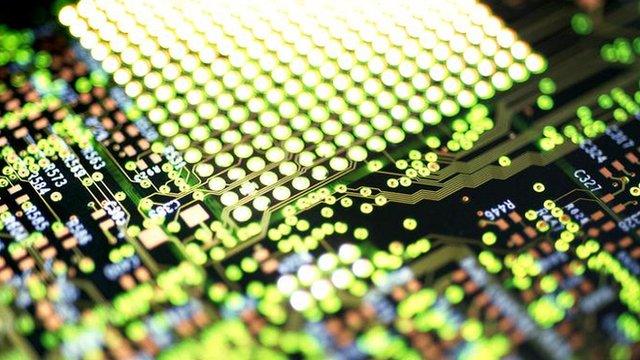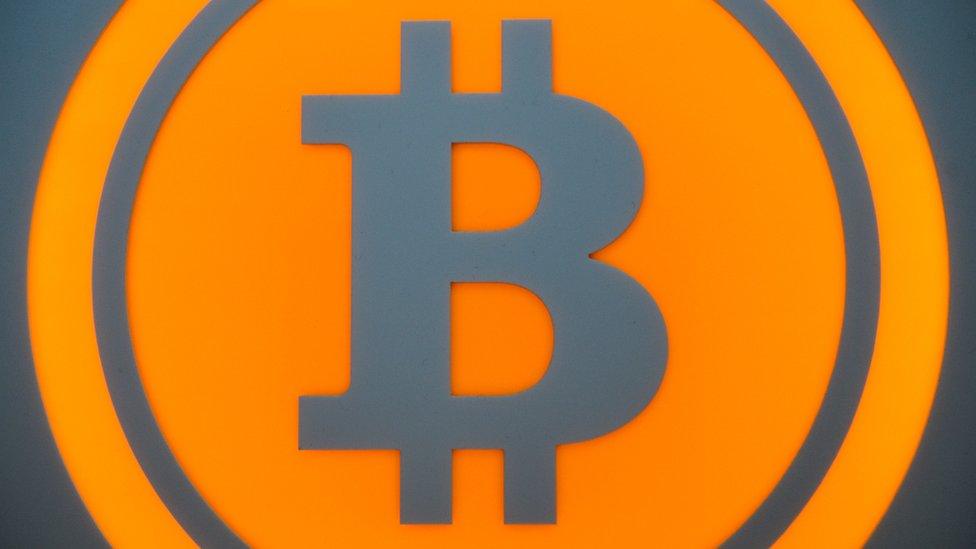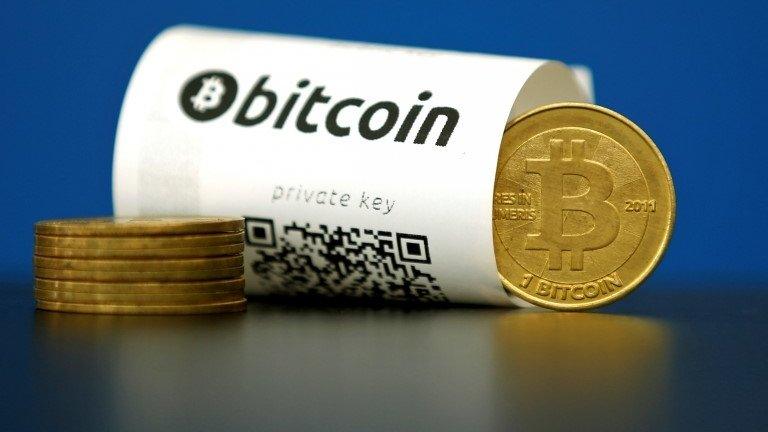China crackdown sends Bitcoin sliding
- Published

Chinese spot checks on Bitcoin trading have hit the digital currency's value.
China's central bank said it wanted to investigate market manipulation, money laundering and unauthorised financing.
Chinese exchanges trading in the currency have seen the price of Bitcoin fall more than 16%.
The move comes as Beijing's tries to crack down on money flowing out of the country illegally. The weakening yuan has prompted many people to try to buy foreign currencies.
The Bitcoin currency had soared to record highs in the first days of 2017, a rise attributed largely to strong demand from China, where most Bitcoin trading takes place.
The Chinese central bank said that the "spot checks were focused on how the exchanges implement policies including forex management and anti-money laundering".
The currency traded at $760, external (£624) on Thursday morning, down from more than $915 the previous day. Earlier in January, Bitcoin hit a $1,129 high.
Anonymous currency movements
The crypto-currency relies on web-based transactions handled across thousands of computers and is used as an anonymous way to move money globally.
As a result, some speculate that people in China are using it to circumnavigate strict government rules aimed at preventing money from leaving the country.
Currently, there's an annual maximum that people are legally allowed to change into a foreign currency.
The value of the yuan fell by about 7% last year.
In contrast, Bitcoin's value rose by 125% in 2016, making it the world's best-performing currency when compared with its central bank-issued peers.

How Bitcoin works
Bitcoin is often referred to as a new kind of currency. Yet like all currencies its value is determined by how much people are willing to exchange it for.
To process Bitcoin transactions, a procedure called "mining" must take place, which involves a computer solving a difficult mathematical problem with a 64-digit solution.

Verifying bitcoin transactions takes a lot of computer power
For each problem solved, one block of Bitcoins is processed. In addition the miner is rewarded with new Bitcoins.
To compensate for the growing power of computer chips, the difficulty of the puzzles is adjusted to ensure a steady stream of new Bitcoins are produced each day.
There are currently about 15 million Bitcoins in existence.
To receive a Bitcoin, a user must have a Bitcoin address - a string of 27-34 letters and numbers - which acts as a kind of virtual post-box to and from which the Bitcoins are sent.
Since there is no register of these addresses, people can use them to protect their anonymity when making a transaction.
These addresses are in turn stored in Bitcoin wallets, which are used to manage savings.

- Published3 January 2017

- Published23 December 2016
